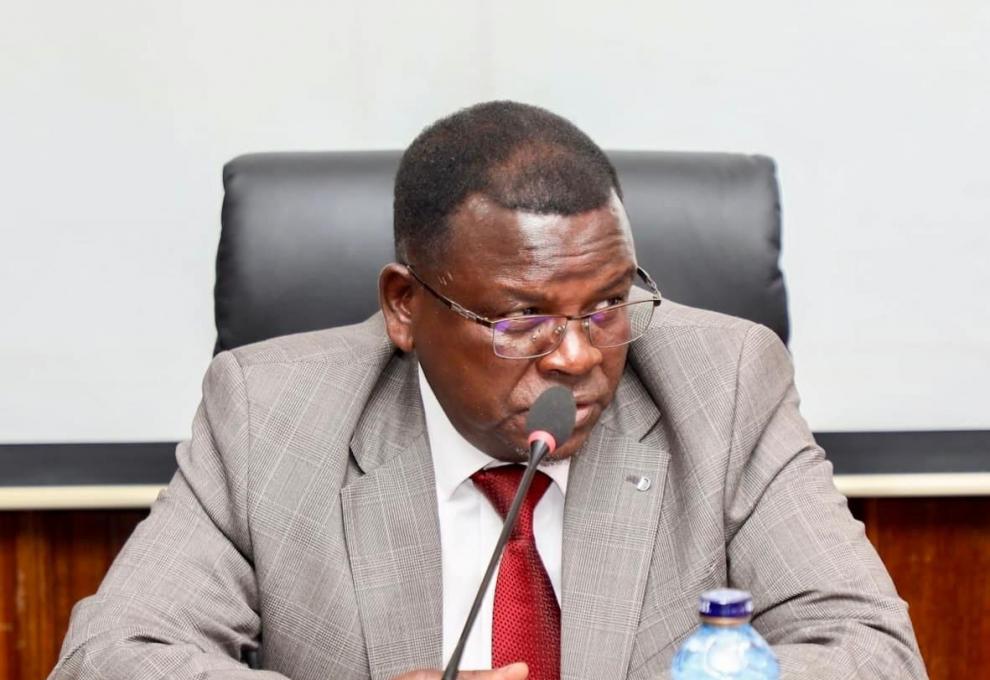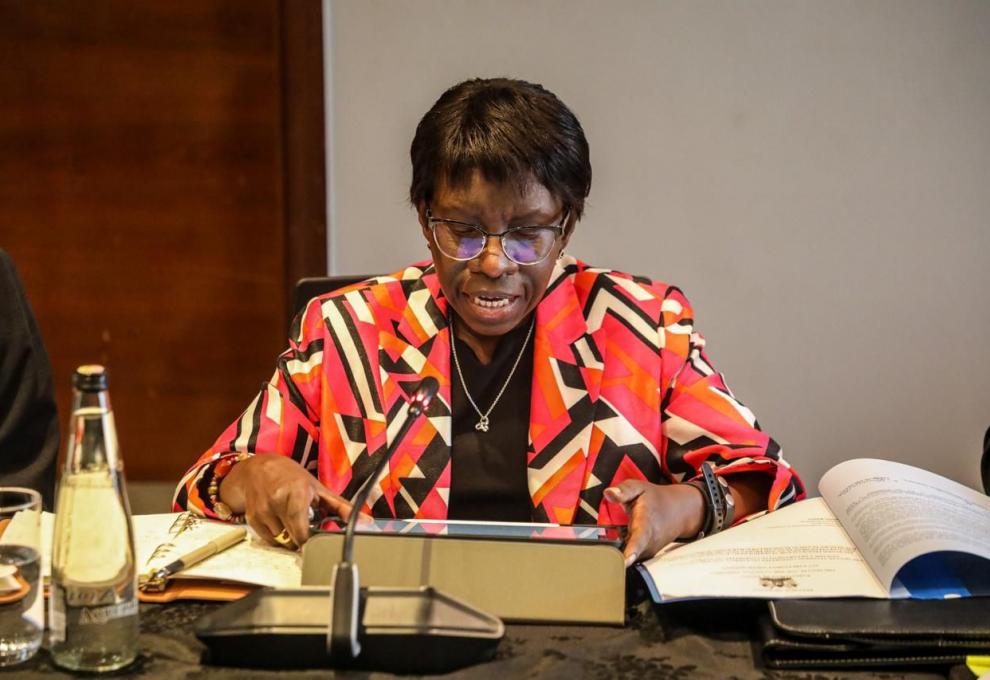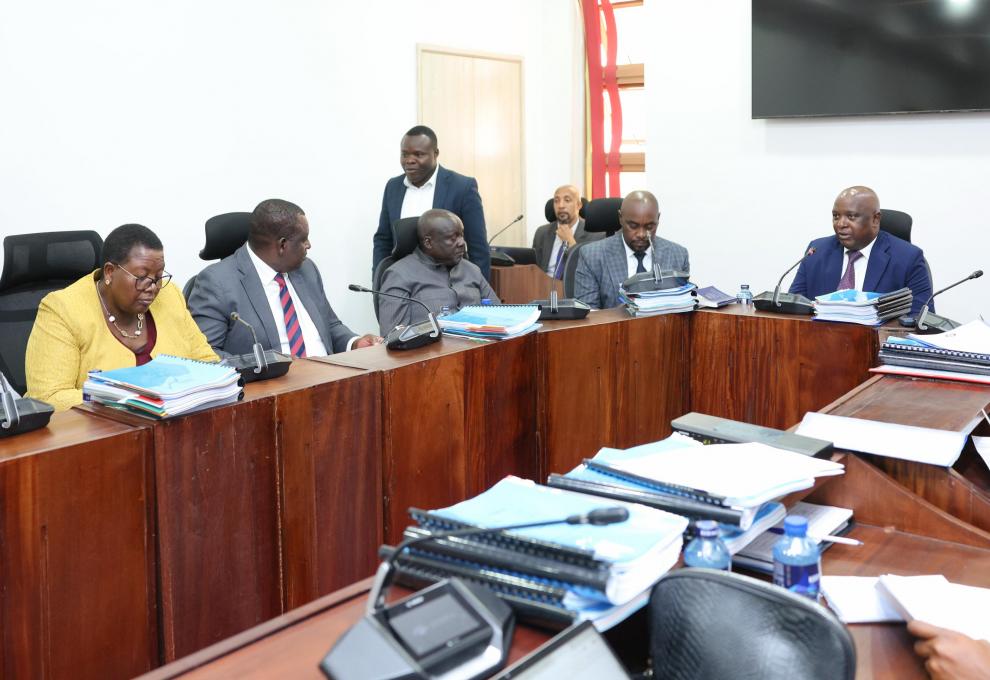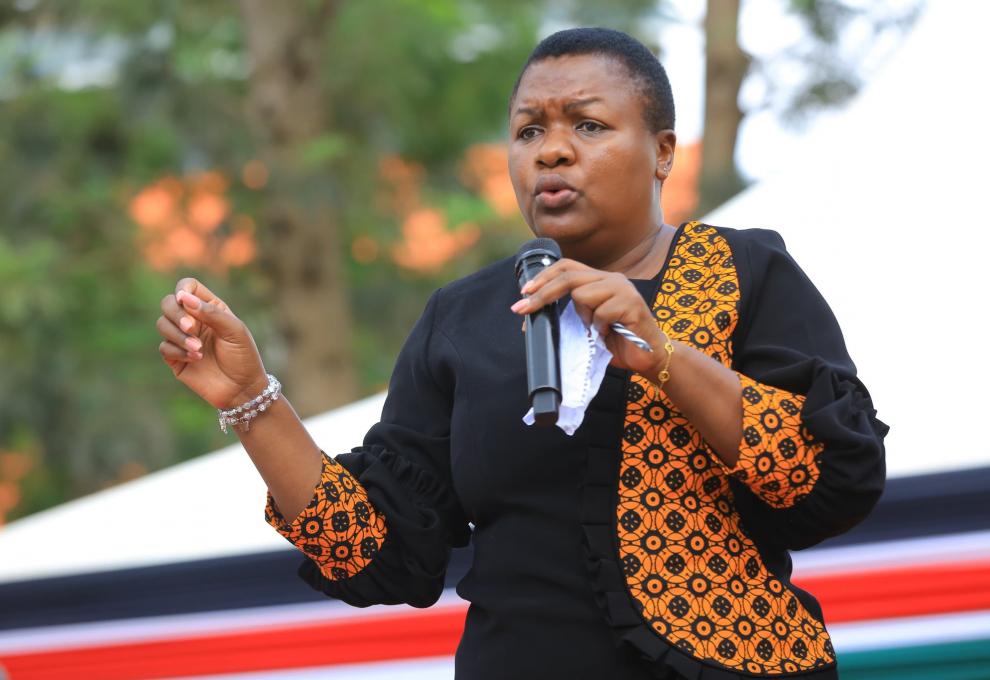𝐆𝐎𝐕𝐄𝐑𝐍𝐌𝐄𝐍𝐓 𝐏𝐋𝐀𝐍𝐒 𝐑𝐄𝐅𝐎𝐑𝐌𝐒 𝐅𝐎𝐑 𝐉𝐔𝐍𝐈𝐎𝐑 𝐒𝐄𝐂𝐎𝐍𝐃𝐀𝐑𝐘 𝐒𝐂𝐇𝐎𝐎𝐋𝐒, 𝐒𝐄𝐍𝐀𝐓𝐎𝐑𝐒 𝐓𝐎𝐋𝐃
Plans are underway to reform Junior Secondary Schools (JSS) to address a series of challenges facing the new level of education, including issues of independence, staffing and the structural framework.
Education Cabinet Secretary Julius Migos Ogamba told the Senate on Wednesday that the Ministry is committed to reviewing the JSS system in order to respond effectively to concerns raised by teachers, parents and lawmakers.
He said that while the Government was currently operating JSS in line with the recommendations of the Presidential Working Party on Education Reforms, consultations were still ongoing.
“The process of reforming Junior Secondary to respond to any emerging concerns is in progress. At the appropriate time, Parliament will be presented with proposals for its consideration,” Mr. Ogamba explained.
𝑇𝑒𝑎𝑐ℎ𝑒𝑟𝑠 ℎ𝑎𝑛𝑑𝑙𝑖𝑛𝑔 𝑠𝑢𝑏𝑗𝑒𝑐𝑡𝑠 𝑜𝑢𝑡𝑠𝑖𝑑𝑒 𝑠𝑝𝑒𝑐𝑖𝑎𝑙𝑖𝑠𝑎𝑡𝑖𝑜𝑛
The Cabinet Secretary was responding to a question from Senator Joe Nyutu (Murang’a), who had sought clarification on why some JSS teachers were being compelled to handle subjects outside their area of expertise.
Mr. Ogamba noted that the competency-based curriculum had introduced new learning areas that did not strictly align with existing teacher specialisations. However, he reassured Senators that steps had been taken to bridge the gaps.
“All teachers in Junior School have undergone retooling to fully equip them with the necessary pedagogical skills to handle the new curriculum. The retooling exercise covered both pedagogy and content in all learning areas,” he said.
He added that the Government had prioritised targeted recruitment and deployment of teachers in critical subjects.
“In the latest recruitment drives, teachers of sciences, mathematics and technical subjects were given priority to address the shortages in those key areas,” he explained.
𝐼𝑛𝑓𝑟𝑎𝑠𝑡𝑟𝑢𝑐𝑡𝑢𝑟𝑒 𝑔𝑎𝑝𝑠 𝑎𝑛𝑑 𝑙𝑎𝑏𝑜𝑟𝑎𝑡𝑜𝑟𝑦 𝑓𝑎𝑐𝑖𝑙𝑖𝑡𝑖𝑒𝑠
Senators also pressed the Cabinet Secretary on the state of learning facilities in JSS, particularly practical spaces such as laboratories and workshops.
Mr. Ogamba acknowledged the gaps but pointed out that significant efforts had been made to strengthen infrastructure.
He cited the construction of 23,000 classrooms across the country and directed schools lacking purpose-built laboratories to repurpose existing facilities for practical learning.
“Currently, schools without dedicated laboratories have designated rooms equipped to support practical components. We have instructed Junior Schools to use their infrastructure repair, maintenance and improvement allocation to establish laboratories. This allocation provides Ksh.4,000 per learner annually,” the CS stated.
𝐵𝑒𝑦𝑜𝑛𝑑 𝑁𝐺-𝐶𝐷𝐹, 𝑜𝑡ℎ𝑒𝑟 𝑖𝑛𝑓𝑟𝑎𝑠𝑡𝑟𝑢𝑐𝑡𝑢𝑟𝑒 𝑓𝑢𝑛𝑑𝑖𝑛𝑔
Senator Mwenda Gataya (Tharaka Nithi) sought clarification on strategies the Ministry was pursuing beyond reliance on the National Government Constituencies Development Fund (NG-CDF) to finance school infrastructure.
The Cabinet Secretary said a multi-pronged approach was being pursued.
“We are securing targeted budgetary allocations for infrastructure development, mobilising resources from development partners such as the World Bank and the Global Partnership for Education and collaborating with entities like the Kuwaiti Fund and the Safaricom Foundation,” he said.
He further noted that the Ministry was promoting alumni-led initiatives where former students mobilise resources, materials and labour to upgrade their alma mater.
“Such community-driven efforts foster a sense of ownership and responsibility in improving educational facilities,” he added.
𝑆𝑡𝑎𝑡𝑒 𝑜𝑓 𝐵𝑜𝑚𝑒𝑡 𝑈𝑛𝑖𝑣𝑒𝑟𝑠𝑖𝑡𝑦 𝐶𝑜𝑙𝑙𝑒𝑔𝑒
In response to a question from Senator Wakili Sigei (Bomet) on the status of Bomet University College, Mr. Ogamba confirmed that several major projects were nearing completion.
These included the Library Block, Kitchen and Hostel facilities, and new lecture halls.
“Most of these projects are now over 90 per cent complete and once finalised, they will significantly improve the learning environment for University students,” he assured.
𝐿𝑒𝑐𝑡𝑢𝑟𝑒𝑟`𝑠 𝑠𝑡𝑟𝑖𝑘𝑒
On the matter of the lecturers’ strike, CS Ogamba told the Senate that discussions are ongoing to resolve the stalemate, though he accused the dons of lacking sincerity. He stated that the government has honoured all agreements under the 2021–2025 Collective Bargaining Agreement (CBA), but revealed that a dispute has arisen over the exact amount required to settle the 2017–2021 CBA. The courts, he noted, have already issued an injunction against the strike and directed the parties to engage in talks and verify the precise sums to be paid.
He further questioned why lecturers have raised concerns over the delay in commencing negotiations for the 2025–2029 CBA, pointing out that the agreement stipulates that talks should begin during the 2025/2026 cycle.
Nevertheless, he told the House that the parties are scheduled to appear before the Court on 6th October to chart the way forward.
𝐺𝑖𝑟𝑙𝑠’ 𝑑𝑟𝑜𝑝𝑜𝑢𝑡 𝑐𝑟𝑖𝑠𝑖𝑠 𝑖𝑛 𝐾𝑖𝑙𝑖𝑓𝑖 𝐶𝑜𝑢𝑛𝑡𝑦
A separate question by Senator Stewart Madzayo (Kilifi) focused on the high dropout rates among girls in Kilifi County, many of whom leave school due to poverty, early pregnancies and domestic caregiving responsibilities.
CS Ogamba admitted that the situation was dire and identified poverty as a root cause, forcing many children to prioritise work over education, thereby making them vulnerable to exploitation and early pregnancies.
“According to the National Council for Population and Development, cases of teenage pregnancies in Kilifi stood at 9,578 in 2019. Cultural practices such as disco matanga, drug and alcohol abuse and widespread poverty have made many girls especially vulnerable,” he disclosed.
𝑆𝑒𝑛𝑎𝑡𝑜𝑟𝑠 𝑑𝑒𝑚𝑎𝑛𝑑 𝑎𝑐𝑐𝑜𝑢𝑛𝑡𝑎𝑏𝑖𝑙𝑖𝑡𝑦
However, Senators expressed dissatisfaction with the Ministry’s handling of the issue. They accused the Government of failing to take decisive action against perpetrators of sexual exploitation.
Senator Edwin Sifuna (Nairobi) led the charge, insisting that the Ministry should not simply pass responsibility to the Office of the Director of Public Prosecutions (ODPP).
“The Ministry of Education is the custodian of our children, knowing what happens in some of these areas, you might not get a complainant, our expectation is that the Ministry is the complainant, the Ministry has figures, 6000 teenage pregnancies in Kilifi County, they are the custodians of the data of the victims, so for the CS to refer us to the DPP is disingenuous, they should actually be the complainants in these cases, the Minister is trying to run away from this, if they have the data of the victims, how can they not have data of the perpetrators,” stated Sen. Sifuna.
Other Senators echoed his sentiments, urging the Ministry to play a more proactive role in protecting vulnerable learners and ensuring justice for victims of abuse.
Despite the sharp exchanges, CS Ogamba reassured the Senate that the Ministry was committed to resolving the challenges facing JSS and the broader education sector.
He emphasised that reforms would continue to be guided by evidence, consultation and the goal of ensuring that every Kenyan child had access to quality and relevant education.
















